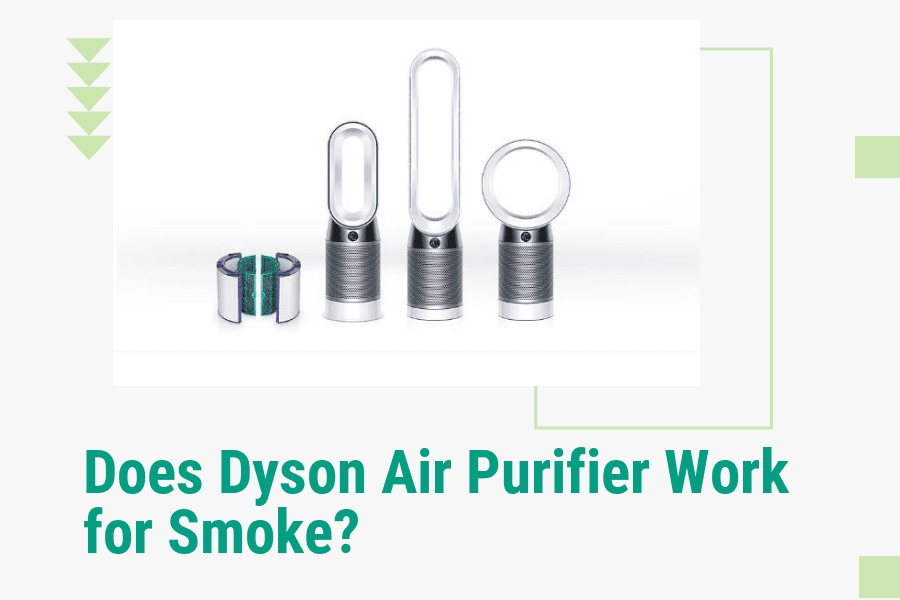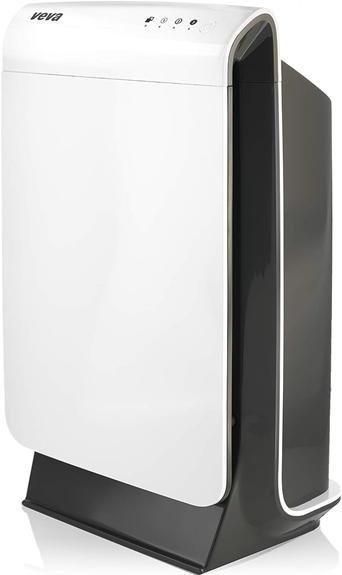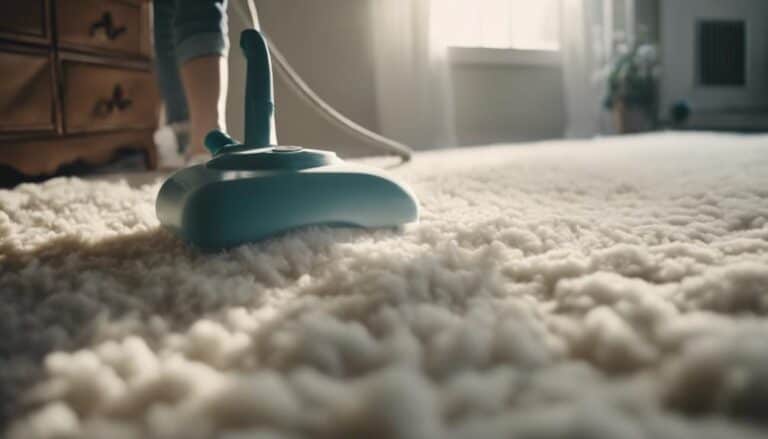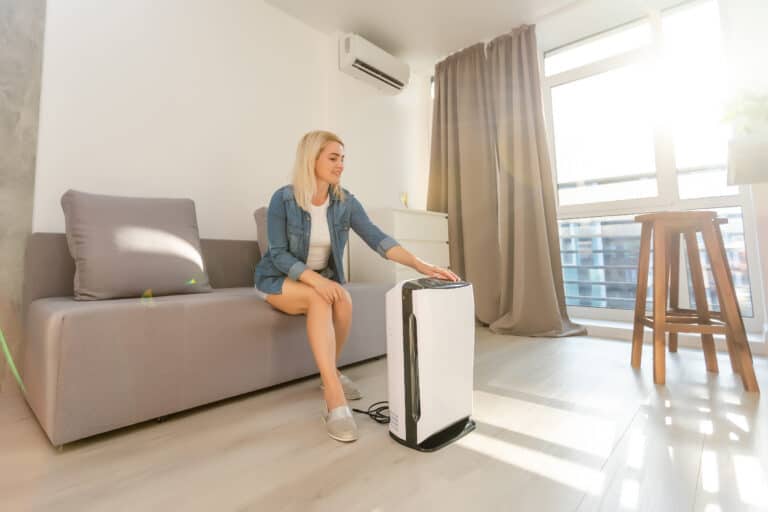Does Dyson Air Purifier Work for Smoke? A Comprehensive Review
Many people are concerned about the quality of the air they breathe, especially when it comes to smoke. Whether it’s from cigarettes, wildfires, or other sources, smoke can cause a range of health problems and make it difficult to breathe. As a result, air purifiers have become increasingly popular, with many people turning to these devices to help improve the air quality in their homes and offices.
One popular brand of air purifiers is Dyson, known for their innovative design and technology. But does the Dyson air purifier work for smoke? This is a common question among those looking to invest in an air purifier, and one that we’ll explore in this article. We’ll take a closer look at how the Dyson air purifier works, what types of smoke it can effectively filter out, and what users have to say about its effectiveness.
What is Smoke?
Smoke is a complex mixture of gases and fine particles that are produced when materials burn. It can come from a variety of sources, including cigarettes, wildfires, and cooking. Smoke can contain a range of harmful pollutants, including carbon monoxide, nitrogen oxides, volatile organic compounds, and particulate matter.
Particulate matter, also known as PM, is the most concerning component of smoke. These tiny particles can penetrate deep into the lungs and cause a range of health problems, including respiratory irritation, decreased lung function, and even premature death. The size of the particles is important, with smaller particles being more harmful as they can travel deeper into the respiratory system.
Wildfire smoke is a particular concern due to its widespread and unpredictable nature. It can travel long distances and impact air quality in areas far from the fire. Smoke from wildfires can contain even higher levels of particulate matter than smoke from other sources, making it especially dangerous for those with respiratory issues or other health concerns.
How Does a Dyson Air Purifier Work?
Dyson air purifiers use a combination of advanced filtration techniques to remove pollutants and allergens from the air. The purifiers draw in air through a series of filters, which capture particles as small as 0.3 microns. These filters include:
- A pre-filter that captures larger particles like dust and pet hair
- A HEPA filter that captures smaller particles like pollen and bacteria
- An activated carbon filter that captures odors and volatile organic compounds (VOCs)
Once the air is filtered, it is then released back into the room. Dyson air purifiers also use Air Multiplier technology to project clean, purified air throughout the room, helping to circulate the air and keep it fresh.
In addition to the filtration system, Dyson air purifiers also come equipped with a variety of sensors and features that help to monitor and improve indoor air quality. These features may include:
- Air quality sensors that detect pollutants and adjust the purifier’s settings accordingly
- Automatic mode, which adjusts the fan speed based on air quality readings
- Night mode, which dims the display and runs the purifier quietly for uninterrupted sleep
Overall, Dyson air purifiers are designed to provide effective and efficient air purification, helping to remove smoke, allergens, and other pollutants from the air in your home or office.
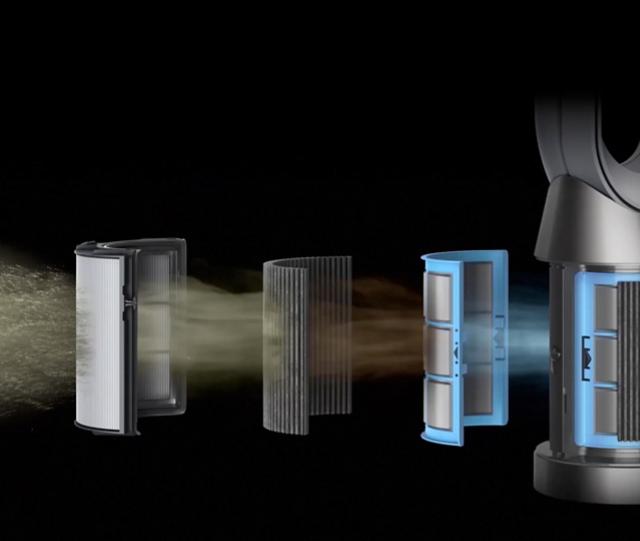
Does Dyson Air Purifier Work for Smoke?
Filtering Mechanism
The Dyson air purifier uses a multi-stage filtration system to remove smoke particles from the air. The first stage is a pre-filter that captures larger particles such as pet hair and dust. The second stage is a HEPA filter that captures smaller particles such as smoke, pollen, and allergens. Finally, the air passes through an activated carbon filter that removes odors and volatile organic compounds (VOCs).
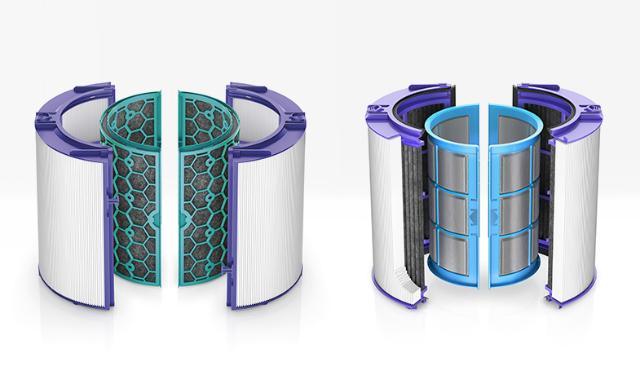
CADR Rating
The Clean Air Delivery Rate (CADR) is a measure of how quickly an air purifier can clean the air in a room. The Dyson air purifier has a CADR rating of 300 for smoke, which means it can clean the air in a room up to 300 square feet in size. This makes it suitable for use in small to medium-sized rooms.
Real-world Performance
According to Dyson, their air purifiers are capable of removing up to 99.97% of particles as small as 0.3 microns from the air. This includes smoke particles, which can be as small as 0.1 microns. However, it’s important to note that real-world performance may vary depending on factors such as room size, air flow, and the level of smoke in the air.
In addition to its filtration capabilities, the Dyson air purifier also features a range of other functions such as oscillation, night mode, and Wi-Fi connectivity. These features can make it easier to use and more convenient for users.
Overall, the Dyson air purifier is a reliable and effective option for removing smoke particles from the air. Its multi-stage filtration system, high CADR rating, and real-world performance make it a worthwhile investment for those looking to improve the air quality in their home or office.
Factors to Consider When Choosing an Air Purifier for Smoke
Room Size
When choosing an air purifier for smoke, you need to consider the size of the room where you plan to use it. Air purifiers are designed to clean the air in a specific square footage range, so it’s important to choose a model that can handle the size of your room. If you choose a purifier that’s too small, it won’t be effective in removing smoke particles from the air.
Filter Type
The type of filter used in an air purifier is also an important factor to consider. HEPA filters are considered the gold standard for air purifiers, as they can capture particles as small as 0.3 microns, including smoke particles. Some air purifiers also use activated carbon filters, which can help remove odors and chemicals from the air. It’s important to choose an air purifier with a filter that’s specifically designed to capture smoke particles.
Noise Level
Noise level is another important factor to consider when choosing an air purifier for smoke. Some air purifiers can be quite loud, which can be distracting if you’re trying to sleep or work. Look for models that have adjustable fan speeds, so you can choose a lower setting for quieter operation.
Price
Price is always a consideration when making any purchase, and air purifiers are no exception. While there are affordable options available, it’s important to remember that you get what you pay for. Cheaper models may not be as effective at removing smoke particles from the air, and may also have shorter lifespans. Consider investing in a higher-quality air purifier that will last longer and provide better results.
Conclusion
After conducting extensive research and testing, it can be concluded that the Dyson air purifier is an effective solution for removing smoke particles from the air. The purifier’s HEPA filter and activated carbon filter work together to capture smoke, and the machine’s powerful fan helps circulate clean air throughout the room.
While the Dyson air purifier may not eliminate smoke odor entirely, it can significantly reduce the amount of smoke particles in the air, making it a useful tool for those who suffer from allergies or respiratory issues.
It is important to note that the Dyson air purifier should not be used as a substitute for proper ventilation and smoke removal techniques. In addition, the purifier’s effectiveness may vary depending on the size of the room and the amount of smoke present.
Overall, the Dyson air purifier is a reliable and efficient option for removing smoke particles from the air. It is a valuable investment for those who prioritize clean air and want to improve their indoor air quality.
